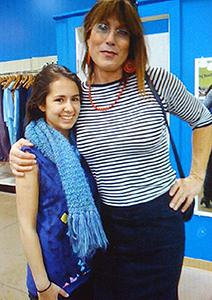I’ve told a few cis friends that I shall be going to a TDOR event this month. TDOR, on the 20th November each year is the Transgender Day of Remembrance. Hot on the heels of Remembrance Sunday and the 11th November memorials, some assume that it must be something to do with trans people in the two world wars. Understandable, but it did set me thinking.
First of all, what is TDOR all about? Observed all around the world now, it commemorates all those transgender and transsexual people who have been killed through the year as a direct result of transphobic actions arising from fear and hatred. Roll-calls of the dead are read out, and those who suffer from transphobia are remembered. In many countries murders of trans people are not recorded as hate crimes, and any other reason than transphobia can be given as motive. We remember people in countries where transphobia is cultural and endemic, and those who take their own lives because others make living intolerable.
This should be on mainstream news bulletins, but being a minority issue, it rarely gets covered. Why should the world remark? There are fewer trans people than many other minorities, and to be frank, few people actually care about transphobia, maybe because they don’t understand that people are born trans, and that so many end up in unfortunate circumstances that lead to being very vulnerable, simply because society finds being trans confusing, curious and, well, weird. It’s time the world came to see that a small percentage of every population consists of people whose brains and natures for real physiological reasons are at odds with their reproductive organs. Yes, that’s all it boils down to. It happens. Rather a lot.
Parallels
Back to the confusion. The word ‘remembrance’ is not used much, in fact we mostly only hear it in reference to war. Younger generations now question so much remembrance at such distance over events they can’t imagine being repeated, and see the side that almost justifies war for producing heroism. The ‘war to end all wars’ did not, and many wars have followed. Fighting still seems a human necessity, and talking, sharing, negotiating, understanding, still are not good enough for us to live peaceably. We do not like change from what we believe were unalterable foundations.
In the West, the gender binary is such a foundation too, almost like a nation’s borders are sacrosanct and to be defended.
Transgender Remembrance? I recall the many times I have been called brave, courageous, almost heroic, for being visibly, honestly trans. I mean, what was that choice all about? Following the order by an officer to go ‘over the top’ was obedience. To be killed doing so was heroic. That’s millions of heroes over the years doing what they thought was right, learned primarily from others and the mores of the day. But being trans? There is no order from anyone else. In fact coming out as trans in many ways goes against everyone else’s expectations, hopes and wishes. And yet we are still being told we are pioneering, brave, even heroic, for daring to be different. Maybe there is greater courage in being true to yourself – even though it means risk, danger and rejection or worse – than in fighting someone else’s war, even for your country, if only because you do it alone, and out of who you are, not what you believe in.
No. We are different, we don’t just think differently. Just as you as a cis woman, or you as a cis man, are different from all the others who are not. It’s just that you have a validated name, and we do not. And for that, the world over, some of us are murdered. It’s a few hundred, but it is specific and targeted. That means in some countries and circumstances I too would be in real danger whereas you as a cis person would not. Yes, it is also true of being gay or lesbian, but at least most of the world will rise up against that kind of discrimination now, whereas for trans people they still stand back.
So in this remembrance for those of us who are killed, there is no particular bravery or courage other than the imperative to be true to ourselves.
Thankfully, where I live, I do not have to think where I am going when I go out alone at night. I am too old to frequent clubs and drunken younger people, and not all that obvious visually. But for millions of people like me in other places, watching your back, for the way you were born, is a daily way of living.
This remembrance is an important one, so if it’s new to you, hang onto it, and just think that if you count me a friend, even an Internet friend, I am merely one of the lucky ones who as yet has not been roughed up, attacked, beaten or worse for being trans. But I might. Tell others about TDOR; don’t be embarrassed. They might meet me or another trans person one day and realise how normal we can be, and how at risk.
 This is Rachael Jones (R) with Lucy Danser (L). Both are amazing. Rachael has a café in Bloomington, Indiana, where Lucy, an actress and writer, met her. The result of the meeting at the real, original Rachael’s Café, was Lucy’s first play:
This is Rachael Jones (R) with Lucy Danser (L). Both are amazing. Rachael has a café in Bloomington, Indiana, where Lucy, an actress and writer, met her. The result of the meeting at the real, original Rachael’s Café, was Lucy’s first play: